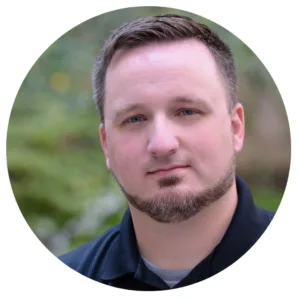Enrollment cliff. Budget cuts. Reorganizations. Oh my! With these ever-present challenges, there is always discussion about “collaboration” and “breaking down silos.” Ultimately, this means “lean operations” (hereafter “lean ops”). While no one truly LOVES lean ops, it is not the proverbial “monster in the closet” and can lead to some very creative solutions to the real problems we face.
The origin of lean operations can be traced to the Toyota Motor Company, who developed this guiding principle over multiple decades. They “emphasized continuous improvement and respect for employees as key to strategic business philosophy to enhance product quality” (Balzer et al., 2016, p. 442). The idea is to increase efficiency and eliminate waste (Balzer et al., 2016). Though Toyota’s approach focused on improving auto parts, these tenets are applicable to higher education. Since the COVID-19 pandemic, higher education has looked for ways to increase efficiency. A few examples cited in the article applicable to higher education are in the area of student admissions, staff/faculty hiring, and student advising among others. Perhaps lean ops is the path forward towards achieving efficiency, so why not take full advantage of it?
Though student affairs professionals are accustomed to using lean ops, there are opportunities to improve the application of the framework. Several years ago, during a professional development session, I heard student affairs practitioners referred to as “GPS” (general problem solvers). While we have our specific areas of expertise, such as student government, fraternity and sorority life, and campus programming, we are not alone in those spaces. To increase efficiency, it is important that all team members are cross-trained on other team members’ job functions and how to complete those tasks. Applying these principles to any office on a campus can maintain the essential services provided in the event a position becomes vacant. Lean ops can also improve student (read “customer”) service, as anyone in an office can help that student. As shared earlier, we have an opportunity to be a GPS.
According to Balzer et al. (2016), “Project teams achieved process improvements through a general five-step process:
- identifying constituents who benefit from the process and what they value.
- applying lean tools and techniques to analyze the current process to surface wasted steps, efforts, and inefficient flow among the process steps.
- redesigning the process using lean techniques that eliminate waste, improve flow and better meet constituents’ needs.
- implementing and regularly evaluating the updated processes using metrics that reflect what constituents expect from the process; and
- continually improving the process with the ultimate goal of achieving perfection in the eyes of all constituents” (p. 443)
When applied to higher education, Balzer et al. (2016) found numerous improvements that, when implemented, resulted in reduced service wait times for students, less backlogs of work, and improved financial savings, among others. Ultimately, we can see that lean ops can result in better outcomes for students. Of course, the next question is, “what about student affairs staff?”
For those of us in administrative roles, we can benefit most from improvements in our own workloads. For example, a single point of failure is created when one primary contact employee is trained on organizational roster management and that person leaves the institution or is otherwise out of office for an extended period. We can prevent this failure point when multiple employees are trained in roster management, thereby continuing with positive student service/engagement. This is one of numerous examples where having fully cross-trained staff becomes critical to an office’s success.
Another example can be found in student advising. How many times has a student come for advice only to find that the person they need to speak with is unavailable? A student’s need for advice is not date/time specific, but rather happens organically because life happens organically. Now, imagine that same student comes in for advice and anyone in the office can assist. That student will walk away feeling satisfied and with the information they need, and staff have one less follow-up email or meeting upon their return. This will improve the quality of the student’s experience which can directly benefit the university in time, talent, and treasure once the student graduates.
Another advantage of lean ops is that it can improve communication and collaboration among units. When we are lean in staffing, we can bring in staff experts from across campus to assist with programming. No one is an expert in everything, nor should they be. Thus, having experts in multiple campus units is critical to the success of a lean ops office. Let’s say you want to create a space for improved engagement with a certain group of students. As the student engagement office, you have a substantial skill set, but you may not have all the pathways to engage with said group. Thus, you bring in others. Now you have increased your opportunities to engage with students. As an added bonus, you have the opportunity to expose folks with unfavorable perceptions about your unit to what you do and how you do it which has the potential to change their perspectives. Throughout my career, I have seen numerous times when a colleague’s negative attitude about fraternity and sorority life quickly changes as a result of collaborating on a project. When you hear, “Oh, I had no idea you were doing all this great stuff,” you will know you turned an adversary into an ally and, potentially, an advocate.
Whether you decide to move to lean ops voluntarily or, more likely, have it thrust upon you, it is important to ensure that your team members are ready and comfortable with the changes. Successful implementation of lean ops hinges on all members of the team supporting the change, even if it is only at a basic level. It is important to validate any adverse feelings towards lean ops and help team members work through those feelings so that they all feel comfortable with the changes. You will run into barriers, which is normal with any change. The most important thing to remember is that change is not instantaneous. Give your team time to adjust and encourage them to support each other. Remember to reach out to colleagues for assistance – you do not need to implement changes alone.
Conclusion: While no one necessarily wants to utilize lean operations, this appears to be the way of the future of higher education. This is an opportunity for us to step back, decide what is truly mission critical that must continue and what can be sunset. A wise supervisor once told me, “we love to try and do everything, but that is not our reality, nor does it mimic that post-graduation world. We must help students prepare for life after graduation and that includes understanding that not everything is going to be done for them.” For more information on implementing a lean ops program, check out Balzer’s work.
References
Balzer, W. K., Francis, D. E., Krehbiel, T. C., & Shea, N. (2016). A review and perspective on Lean in higher education. Quality Assurance in Education, 24(4), 442–462. https://doi.org/10.1108/qae-03-2015-0011

About the Author
Christopher A. Miofsky is the associate director of fraternity and sorority life at the University of Denver. His previous experience includes roles as the Fraternity and Sorority Advisor at Lindenwood University and Washburn University. Miofsky is a member of Delta Lambda Phi Social Fraternity, where he continues to contribute as the Director of Fraternity Growth (Expansion), and is a volunteer for AFA, the Association of Fraternal Leadership & Values, Sigma Tau Gamma, and Phi Gamma Delta fraternities. He holds a master’s degree in adult and higher education from the University of Missouri-St. Louis and a bachelor’s degree in sociology from Southern Illinois University Edwardsville.




